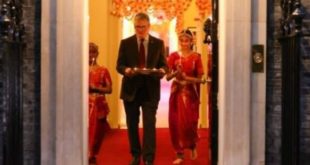
Hospice: Backdoor talks are going on between the Tibetan government (territorial government) and China. From this it is being estimated that there is a possibility of resuming the talks between the two countries which were stalled since 2010. In fact, the talks going on from 2002 to 2010 were stopped after widespread anti-China protests in Tibet.
Penma Tsering, Sikyong (Prime Minister) of Tibet's Arsi government, also confirmed this news. He said that some mediators are talking to people in Beijing for this, but no decision has been taken yet and there is no immediate possibility of further talks.
He said that last year we were holding back channel talks. But no immediate results are visible. It seems that the conversation will go on for a long time. The talks between those mediators were also very informal. However, even in Beijing, few people are willing to talk to us directly. The head of the Central Tibetan Administration also said this.
From 2002 to 2014, 11 rounds of talks took place between Tibet's spiritual leader Dalai Lama and the Chinese government.
Another leader of Tibet's Arji government told reporters that back channel talks would be held to begin official discussions on the resolution of the Tibet issue.
However, after the conflict in Ladakh between India and China in 2020, the situation has worsened significantly. This is also certain. However, Tibet wants to find a way out of this impasse by adopting a middle path. The Dalai Lama says that he does not want complete independence for Tibet but complete internal autonomy. I am always ready for talks with China, Tibet may remain a part of China but it should get full autonomy.
Dalai Lama had given this statement last year also. However, there was no clear response from China. It seems that Tsering is not very optimistic about the success of the talks with China.
After the communist government was formed in China under the leadership of Mao on 1 October 1949, China occupied Tibet in 1950. After that, Dalai Lama and hundreds of Tibetans came to India after suffering from their oppression. The Dalai Lama settled in Dharamshala where the Arji government is also established. The question is whether China will be ready to give complete autonomy? In this context, Tseringan noted the cultural heritage similarities between India and Tibet and said that His Holiness the Dalai Lama says that I am a son of India. I am spreading the knowledge of India. We are culturally close to India. Not with China.
 look news india
look news india
